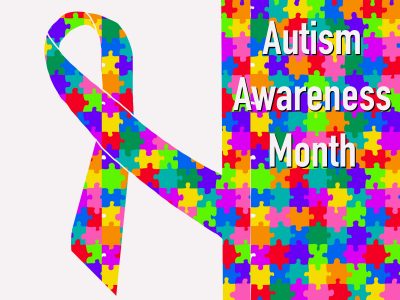The month of April is Autism Awareness Month. For those who may not know exactly what autism is, it is a developmental and neurological disorder that impacts how people behave, communicate, and develop. Things that may be naturally easy in most people’s everyday life, such as understanding when someone is being sarcastic, are much more challenging for someone with autism to point out.
I am familiar with autism because of personal experience.
Growing up, I realized that I showed a high likelihood of having autism. I had difficulties making friends, constant sensory overloads and high levels of anxiety. These were only a few of the symptoms I experienced.

Trained doctors have told me that I likely have autism. Doctors also told me that there was nothing to be ashamed of. I completely agree with this. If someone were to come up to me and ask if I was autistic, I would not shy away from the question and would likely say that I am pretty sure I am.
Problems only began to arise when I was told I should get an official diagnosis. I have decided that I will probably never get a diagnosis for myself. My choice boils down to the process and the outcome that getting a diagnosis like this can get you.
Even considering getting the diagnosis is challenging. You must be put on a waitlist until a trained professional can see you to get a confirmation. That waitlist, on average, is meant to take anywhere between two to 18 months.
Thankfully, social media can have perks. There are videos on apps like TikTok where people vocally express frustration about waiting years for an appointment. There are not enough trained medical professionals with knowledge in the field to meet the demand.
Beyond the waitlist, getting a proper diagnosis is pricey. Getting an official autism diagnosis can cost anywhere from $1,000 to $2,000. Unless one could guarantee that their insurance would cover the cost, some people would have to pay out of pocket.
Let’s say that someone can afford the cost, is willing to be on a waitlist and gets an evaluation. The potential effects of getting that diagnosis should be considered.
Discrimination against the autistic community is prominent. Paul Corby, an American man who has autism and psychological disabilities, has been consistently denied the heart transplant he desperately needs. The medical industry deems him as a risk due to his intellectual disabilities. Corby isn’t the only one denied. It is a common practice — at least in the United States — to deny people with autism an organ transplant.
Countries can deny people citizenship if they have an official autism diagnosis. Canada and New Zealand will not accept autistic immigrants because they view them as a burden to society. Being an outlier is something I heavily thought about when considering getting a diagnosis. I don’t want to be denied a life-saving organ because of my condition or be denied to move to certain regions.
However, I’m not completely against getting a diagnosis. There are multiple benefits to identifying a disability. A diagnosis wouldn’t make that much of a difference in my day-to-day life. Someone with severe autism may be given more access to resources that can be of incredible help to them — such as access to specific medication and therapy.
An autism diagnosis, especially at an early age, can serve those diagnosed and their families. I struggled a lot growing up. I felt like a social outcast and overwhelmed in areas with loud sounds. If I had a diagnosis as a child, it would have assisted with my development. A confirmation could have taught me how to live my life without constant questions.
Many people don’t understand autism. When portrayed in the media, it is viewed as a debilitating trait, superpower or annoyance. This general ignorance ends up as intolerance toward the autistic community.
I understand why people actively choose to stay self-diagnosed — including myself. The confirmation process needs to improve. More medical professionals who understand autism are needed. Undiagnosed people with autism don’t deserve to be denied life-saving care. We don’t deserve the fear of being unwelcome.

















































































































